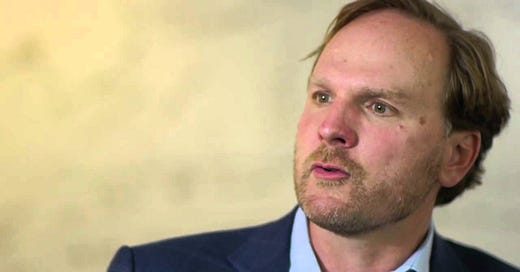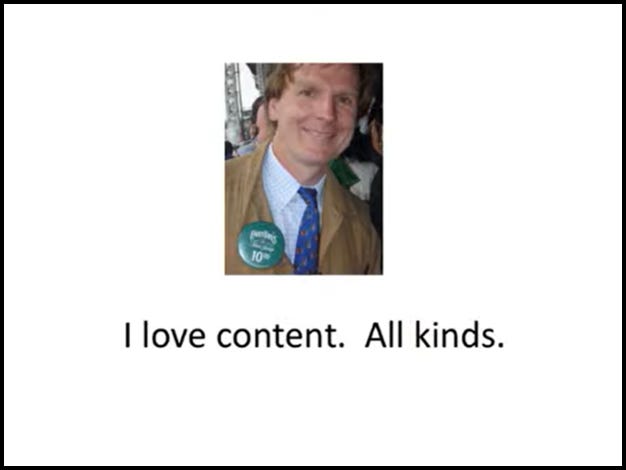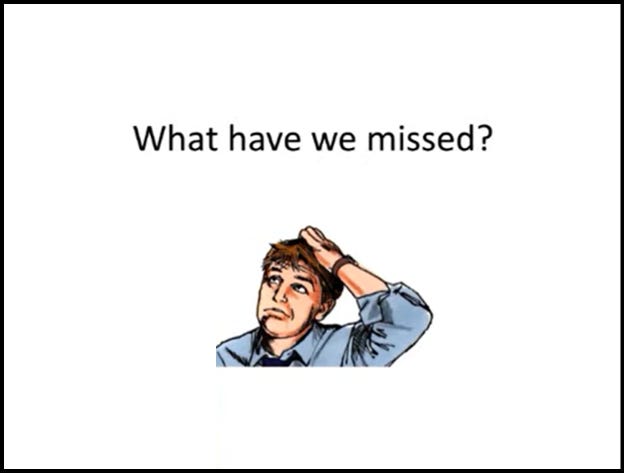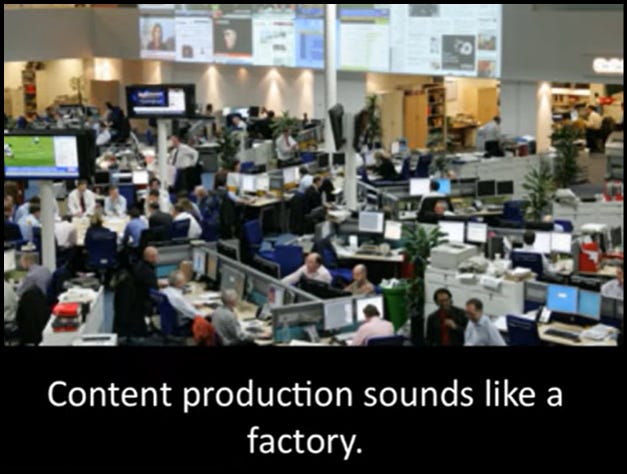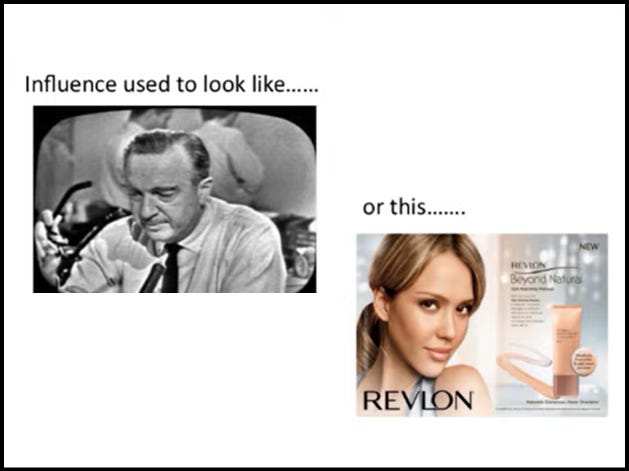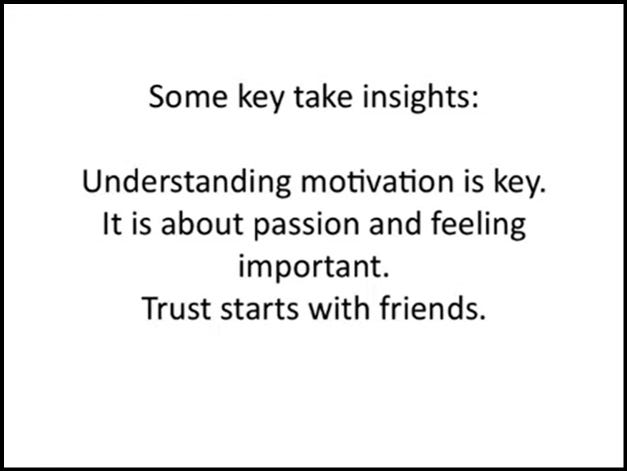Letter #275: Shelby Bonnie (2010)
MD at Tiger Management & Allen & Co. and Founder of CNET & Worbler | Why Passion Trumps Payment
Hi there! Welcome to A Letter a Day. If you want to know more about this newsletter, see "The Archive.” At a high level, you can expect to receive a memo/essay or speech/presentation transcript from an investor, founder, or entrepreneur (IFO) each edition. More here. If you find yourself interested in any of these IFOs and wanting to learn more, shoot me a DM or email and I’m happy to point you to more or similar resources.
If you like this piece, please consider tapping the ❤️ above or subscribing below! It helps me understand which types of letters you like best and helps me choose which ones to share in the future. Thank you!
Shelby Bonnie is the CEO of Worbler AI (fka Pylon AI). Prior to founding Pylon, Shelby was a Managing Director at Allen & Co. Before joining Allen & Co., Shelby was the Founder and CEO of Whiskey Media. And before Whiskey, Shelby had founded and served as CEO, COO, and CFO of CNET Networks. He founded CNET after three years at Tiger Management, which he left as a Managing Director. Shelby started his career at Morgan Stanley in mergers and acquisitions.
Note: Shelby has a Substack where he and a number of his early colleagues tell the story of creation of digital media space as well as look forward to where it’s going.
Today’s letter is the transcript and slides of a talk Shelby gave at TED in 2010 titled Why Passion Trumps Payment. In this speech, Shelby shares his love for content, why content businesses were having a difficult time, the importance of asking “What are we missing?”, why you have to constantly forget everything you learned the past few years, how he is rethinking the content business, namely how content is produced, why content production sounds like a factory but is really about motivation, and how people are influenced and what influence used to look like vs what it now looks like. He wraps up the speech by summarizing the three key takeaways from the speech and sharing three books for suggested summer reading.
I hope you enjoy this speech as much as I did! Shelby is someone I’ve learned a tremendous amount from over the years.
[Transcript and any errors are mine.]
Related Resources:
Tiger Management
Allen & Co.
Transcript + Slides
Great. So, it's a great pleasure to be here. I have the unique pleasure of having worked with the fine ambassador from the US, Matthew Barzun, who, not only did we work together for, I think 10 years was the number, I'm also related to him. So I'm his second cousin. And it's such a treat. I think it's such a wonderful thing for this country to have the magic and special thing, which is Matthew. And so it's a real treat. And we all miss him deeply in the US. I want to talk a bit about the content business. So I, in 1993, with a couple of other people, including Matthew, founded a company called CNET. CNET is one of the--what has become one of what you think of as the leading content companies in the US. We did content around technology, we did content around games and a whole bunch of other things. And I have to say, in my bones, I love the content business. I love everything about the content of business. I love newspapers, radio, TV, movies--I love the whole thing. And I have to say, for someone who deeply loves the content business, it's an incredibly scary time.
It's a time where everyone is really questioning, Is this a business that will survive? You have all sorts of issues going on in terms of kind of what's happening in the advertising market, what's happening in terms of people taking IP and other things. And so it's a real--it's a time of, I think, a lot of self reflection. And I have to say, in all of that, I--take you through some of this--as someone who loves it and has been very entrepreneurial in this space, I have to say it is as exciting a time as I've ever seen in the business. There's a lot of very different and I think forward thinking that's going on in the content business. And I want to just share you some of the things that I'm learning as we go through this process.
So with content business having a tough time, as you go--we go around, talk to venture capitalists, there's about no venture capitalist who wants to invest in the content business. You walk into a meeting, you sit down, they're like, What are you here for? And you're like, Well, I've got this content idea--and before you can actually get it out of your mouth, close up the book, and send you right out the door. And so it's not a time when people are excited about it, yet we have a lot of--there's a lot of interesting things in general that are happening right now. You've got things like Facebook, World of Warcraft, Farmville, Wordpress, Twitter. There's a lot of new and vibrant thinking that's happening in the internet space, and so I think for all of us in the content business, we ask, What are we missing?
And I think it is important always--I mean, one of the lessons that I learned, having been in this business almost 18 years, is that you constantly have to forget all the things you learned in the prior couple of years. And so I'm constantly thinking about how do you reset the hard drive to kind of wipe stuff out? Because what we find is ideas that Matthew and I would have spent a lot of time thinking about in 1995 and dismissed or didn't work, tried and didn't work, have been done then even four or five years later. And so you're constantly having to kind of rethink the model.
Two things I want to talk about that are interesting for me right now is, one is how you think about the notion of kind of how content is produced.
So right now, when people talk about content production, the very word content production sounds like a factory. So it sounds like a bunch of people--and I don't know if any of you have spent time in a newsroom, you kind of go in a newsroom and it's a bunch of people kind of sitting around, crammed in space. And the major innovation that's now happening the content business is, how do I make that factory more efficient? How do I drive costs out of the model? And so there's all these, I think, well meaning people are figuring out, well gosh, I can get people to--instead of paying someone $60,000 a year to be a journalist, I'm going to figure out how to pay people $10 a post to write a little article in a blog. And in some ways, it is one of the most extraordinary, cynical things I've actually seen in my time in the media space, because they're playing this game, and that we're all falling into the game, which is, they've got all these algorithms, they figure out what people are searching for on Google, so they find someone searching for kayaking, they then post, Hey, we'll pay you $10 to write a kayaking story. You take a person, sits down and says, Well, I don't really have time to do much research on this, I'm simply going to do a Google search on kayaking, I'm going to summarize three articles, I'm then going to submit it to an editor who also doesn't know anything about kayaking, who's going to say, Well it's spelled correctly, the grammar is in the right place, must be OK. And then that thing shows up now as a published story. And by the way, this is people like AOL and Yahoo who are participating in this model right now. And so I think we're right in the midst of something kind of, from a cynical standpoint, that are referred to as content pollution, which is just mass production of content. And the world does not want for any more mediocre content. And so that in a funny way, I think, is the bad part of what's happening.
The good part of what's happening is that there's a whole rethink on what motivates people. And I've got a nice picture of two people moving a couch, and there's a great book called Predictably Irrational. There's a story in Predictably Irrational where you're walking down the street and you see two guys moving a couch. And they stop you, and they say, we're trying to move this couch from this truck over to the steps of our house. Would you mind helping? And a huge number of people will help. And there's certain camaraderie, kind of joking around with the guys. You go home, you feel good, you're like, I did my good deed for the day. It's a really, it's actually a relatively pleasurable experience in the big scheme of things. Now you take the same situation, you're walking down the street, you see the two guys with the couch, and they turned you and say, I'll offer you $5 to help move the couch. Now at some level, that's better than the last deal--last deal was free. This deal is $5, so economically, it's a better deal. And you know what? Almost no one will do it. Almost no one will move that couch. Because you start thinking, like, Darn, I'm worth more than $5. How could--what do they--Do I look like a moving guy? I mean, I'm worth more than that. Secondly, you think, Well, they're gonna treat me like I'm their lackey, and they're gonna start bossing me around and stuff, that almost no one will do it. And it turns out, in a funny way, that the good feeling that comes from helping people and kind of being part of the solution is much more valuable than money. Now, maybe if they offered you million dollars--but in most cases, that satisfaction, in terms of how you think about what motivates people, is an incredibly powerful force. You also think about the notion of the word "passion." Take something like Wikipedia. So Wikipedia, and Encarta, which was the encyclopedia founded by Microsoft, one of the most valuable companies in the world--Encarta launched in 1995 when Windows 95 launched. It just closed down this fall. After they had spent millions and millions and millions of dollars trying to create this big encyclopedia. It turns out, by tapping into a bunch of passionate people who really cared about particular topics, that you actually overwhelm the financial power of something like Microsoft. And so we're at a point, from a media perspective, where a lot of the big media companies are still thinking about media as a factory. I'm just producing widgets. Just produce them cheaper and faster. And what you're seeing is, there's an incredibly powerful force as people start to challenge, What are the factors of motivation? And that can be status, that can be mastery, people just wanting to be important. It can be a bunch of things. But it turns out money is actually, in some ways, not the most powerful motivator.
The second thing is how people are influenced.
So, we worked at a content company. We would go hire these people to go review digital cameras. We thought, Well, God, these are the most important people. Every bit of research you did said that the single most powerful thing is not some media person like Walter Cronkite or some star.
The single most important influencer of product decisions is friends. And it's always been friends, it turns out. And it was quite a--it was depressing. We did an ad campaign at CNET, which now will go down as one of the stupidest ad campaigns ever, which was, Don't Let Friends Give Tech Advice. We have Friends Don't Let Friends Give Tech Advice. Which it turns out, is all of us, when you go to get tech advice, get them from your friends. And that is the most important influencer. Now, why is that important? Because now, with things like Facebook, Twitter, all these things, you have much more connection with your friends. And so it's easier for you to figure out what your friends are doing, and for them to be able to influence you. And in a funny way, as you think about media, a lot of the trust around media is now being derived from friends. And so that's why, when you look at kind of distrust of mainstream media, a lot of it has to do with my friends have become easier to get in contact with and are more influential.
So in terms of kind of some key takeaways for me, one is understanding motivation. And I think as all of us as entrepreneurs think about kind of a reinvention of the content business, it is about understanding motivation. It's not about paying people cheaper, it's not about running the factory faster. It's about tapping into what really motivates people to want to go do great things. It's about passion and feeling important. Those are big things that drive us in terms of the things we do. And the final one is trust starts with friends. And that has lots of implications in terms of how we think about the overall media business.
Final thing is a suggested summer reading list. Some of you might have read these two relatively new books, one old, great one. The two relatively new ones is Drive by Daniel Pink, which really talks about kind of this notion of motivation, how to rethink motivation. The other one is Predictably Irrational by Dan Ariely, and that really goes into a notion of all economic theory is based on the fact that people are self-optimizing, economic creatures--this would challenge that notion. And the old but great one is How to Win Friends and Influence People. By Dale Carnegie. If you haven't read it, it's the basis about every great business book, and I'd encourage you to take a little time, put it on your iPad or Kindle, and give it a watch.
And with that, thank you.
If you got this far and you liked this piece, please consider tapping the ❤️ above or sharing this letter! It helps me understand which types of letters you like best and helps me choose which ones to share in the future. Thank you!
Wrap-up
If you’ve got any thoughts, questions, or feedback, please drop me a line - I would love to chat! You can find me on twitter at @kevg1412 or my email at kevin@12mv2.com.
If you're a fan of business or technology in general, please check out some of my other projects!
Speedwell Research — Comprehensive research on great public companies including CSU, META, CPRT, CSGP, AXON, ABNB, and interesting new frameworks like the Consumer’s Hierarchy of Preferences and the Piton Network.
Cloud Valley — Beautifully written, in-depth biographies that explore the defining moments, investments, and life decisions of investing, business, and tech legends like Dan Loeb, Bob Iger, Steve Jurvetson, and Cyan Banister.
DJY Research — Comprehensive research on publicly-traded Asian companies like Alibaba, Tencent, Nintendo, Coupang, Sea Limited (no paywall), and more.
Compilations — “An international treasure”
Memos — A selection of some of my favorite investor memos
Bookshelves — Collection of recommended booklists.
